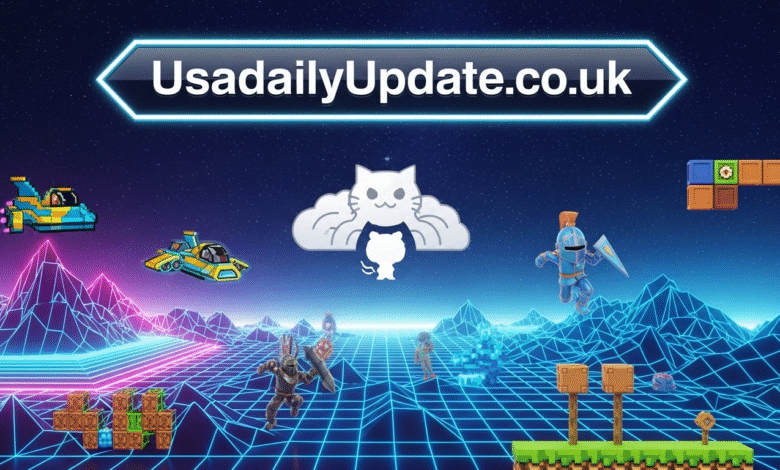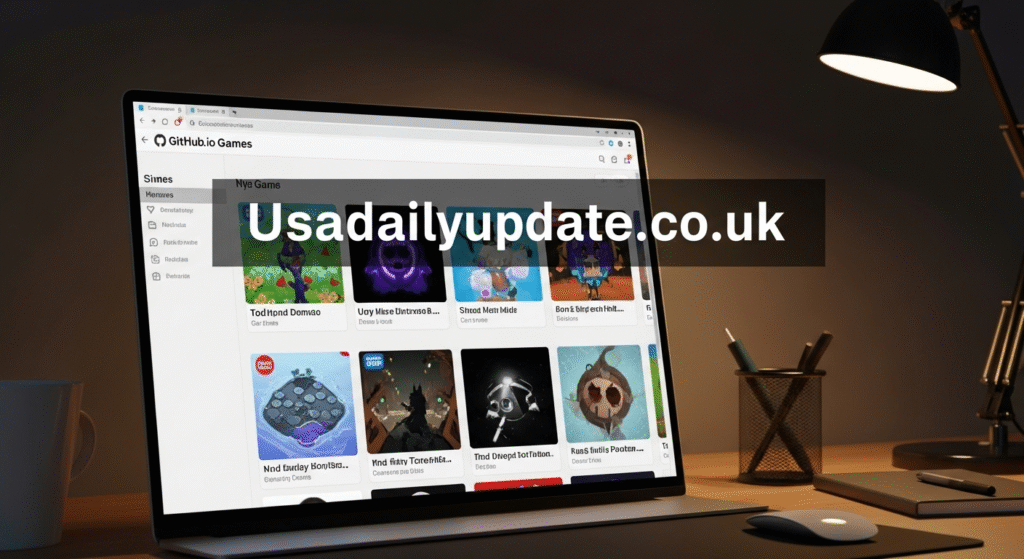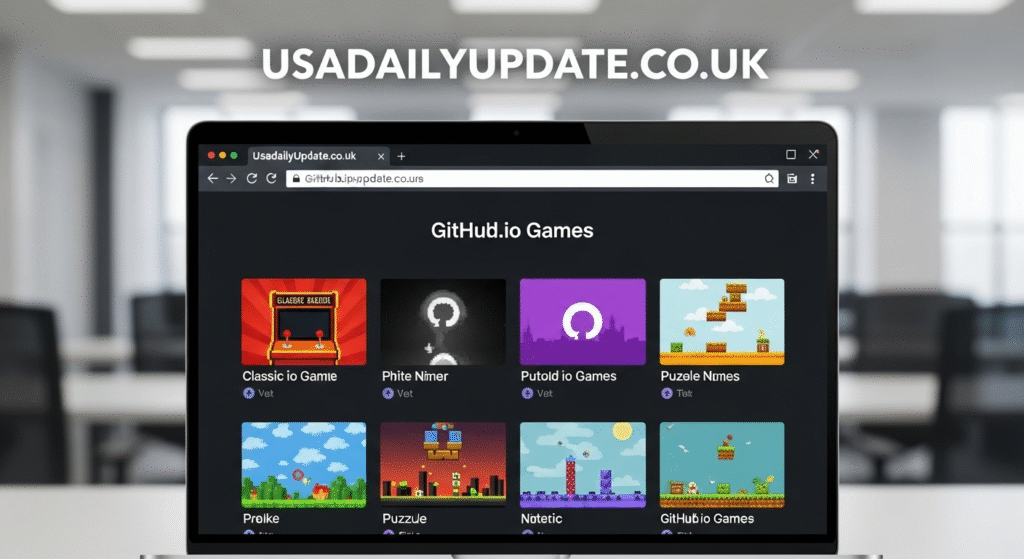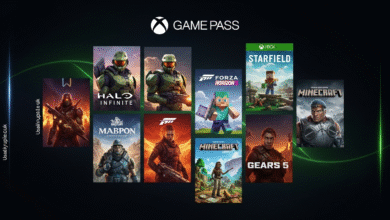Exploring Creative Possibilities: The World of GitHub.io Games

Introduction to GitHub.io and Its Importance in Gaming
GitHub.io Games, commonly referred to as github.io, is a platform that allows developers to host web-based projects directly from their GitHub repositories. This service is particularly advantageous for game developers, as it provides a free hosting solution that enhances the accessibility and visibility of their creations. By leveraging GitHub.io, developers can showcase their games, prototypes, and interactive experiences without the need for costly hosting services. This democratization of web hosting significantly lowers the barriers to entry for aspiring game creators, enabling a broader spectrum of participants in the gaming industry.
The significance of GitHub.io in the gaming sector cannot be overstated. The platform encourages collaboration among developers, fostering an innovative community where individuals can share their projects, solicit feedback, and iterate on their designs. This collaborative spirit is essential in the gaming industry, where ideas can evolve rapidly through community input. GitHub.io not only serves as a display window for finished products but also as a development hub for ongoing projects that can attract contributors and collaborators who share a similar passion for gaming.
Moreover, the ease of use associated with github.io allows developers to focus on their projects rather than dealing with the technical intricacies of web hosting. By simply linking their GitHub repositories with this service, developers can publish their work and make it accessible to a global audience. This capability is crucial for game developers seeking to reach players across various demographics and platforms, enhancing the potential impact of their games. Overall, GitHub.io Games emerges as a pivotal resource that nurtures creativity, collaboration, and community in the realm of game development.
The Rise of Indie Games on GitHub.io
In recent years, indie games have seen a significant rise in popularity, with many independent developers finding a home on platforms like GitHub.io. This trend has been driven by several factors, including increased access to development tools, the democratization of game publishing, and the desire for creative freedom that often accompanies independent projects. GitHub.io serves as an online repository where these developers can showcase their work, share their code, and collaborate with others who are equally passionate about game design.
One of the major advantages of using GitHub.io for indie game development is the sense of community it fosters. Developers can receive immediate feedback from users and peers, allowing them to iterate and improve their games in real-time. Many successful indie games have emerged from this environment, demonstrating the potential of small teams or even solo developers to create compelling experiences. Games like “A Short Hike” and “Celeste,” for instance, began as indie projects and were later hosted on platforms like GitHub.io, where they gained traction and recognition.
The open-source nature of GitHub also encourages experimentation and innovation. Developers can easily explore existing projects, learn from their peers, and even contribute to other games, thus enriching the gaming landscape as a whole. GitHub.io becomes a canvas for creativity, as designers can implement unconventional ideas and prototypes without the constraints typically imposed by publishers or funding bodies. This openness allows for a diverse range of genres and styles to flourish, appealing to various player demographics.
Moreover, the visibility provided by GitHub.io helps indie developers reach a broader audience than they might through traditional channels. By sharing their games and showcasing their unique concepts, developers can garner interest and support that is essential for their growth. The importance of community engagement, accessibility, and creative freedom cannot be overstated in today’s game development landscape, making GitHub.io a valuable resource for indie game creators.

Game Development Tools and Resources Available on GitHub.io
GitHub.io serves as a vibrant platform for aspiring and established game developers, offering a wealth of tools, libraries, and frameworks essential for the game development process. One prominent resource is the array of open-source game engines available, such as Phaser, Godot, and Unity3D. These engines provide intuitive interfaces and extensive documentation, allowing developers to rapidly prototype and launch their projects within a supportive community.
The Phaser framework, in particular, is well-suited for 2D games and has gained considerable popularity for its efficiency and ease of use. Developers can take advantage of its robust plugins and features, enabling the creation of dynamic and interactive gameplay experiences. Additionally, Godot has become a favored choice for many due to its lightweight design and versatility, allowing for both 2D and 3D game development without the typical overhead associated with larger engines.
Furthermore, GitHub.io hosts numerous game development libraries that streamline specific aspects of game creation. For instance, libraries such as Three.js and PIXI.js excel in rendering graphics within web-based games, expanding the creative possibilities for developers working on browser-based platforms. The availability of these resources can significantly reduce the time and effort required to develop engaging games.
APIs also play a crucial role in enhancing the functionality of games available on GitHub.io. Many developers utilize APIs for tasks such as leaderboards, multiplayer functionalities, and real-time interactions, ensuring a richer player experience. Such integrations highlight the collaborative spirit of the GitHub community, where developers freely share knowledge and resources. Overall, GitHub.io not only empowers game developers through accessible tools and libraries but also fosters innovation in game design.
Creating Your First Game on GitHub.io: A Step-by-Step Guide
Creating a game on GitHub.io can be an exciting and rewarding experience, particularly for beginners interested in game development. The first step in this journey is to ensure you have the necessary prerequisites. Familiarity with basic programming concepts is beneficial, especially in JavaScript, HTML, and CSS, as these technologies are commonly used for web-based games. Additionally, you will need a GitHub account, which is free and easy to set up.
Once you have the prerequisites in place, the next step is to create your GitHub Pages site. To do this, navigate to your GitHub account and create a new repository. For GitHub Pages, the repository name should follow the format `.github.io`. After creating the repository, you can enable GitHub Pages in the repository settings. This will provide you with a URL where your game can be accessed.
Following the setup of your repository, it’s important to structure your files correctly. Create an `index.html` file; this will serve as the main page for your game. You can start by writing a simple HTML structure, integrating CSS for styling, and using JavaScript to implement game logic. If you’re unsure where to begin, consider looking for tutorials or templates specifically designed for GitHub.io games, as they can provide valuable guidance and frameworks to build upon.
Once you’ve written your game code, it is time to deploy your game online. After committing your changes to the repository, navigate to the GitHub Pages URL you set up earlier. Your game should be live and accessible to players around the globe. Testing the game thoroughly is advisable to identify any bugs or areas for improvement. Engaging with the community can further enhance your game development skills and provide feedback on your project.
In conclusion, creating your first game on GitHub.io involves a systematic approach: from understanding prerequisites and setting up your environment to writing code and deploying your game online. This platform is an excellent way to showcase your creativity and technical abilities in the fiend of web-based gaming.
Case Studies: Successful Games on GitHub.io
GitHub.io has emerged as a platform where numerous innovative games have taken root, showcasing the unique capabilities of version control and collaborative development. Many developers have successfully launched their projects utilizing this platform, leading to a growing repository of engaging content. One notable example is “Pixel Adventure,” a platformer that stands out due to its nostalgic graphics and engaging gameplay mechanics. The development team utilized GitHub’s issue tracking feature to efficiently manage feedback from players, which was instrumental in iterating on game design. They created a seamless process for reporting bugs and suggesting enhancements, leading to constant improvements in the game.
Similarly, “Space Explorer,” a space-themed shoot ’em up game, capitalized on GitHub’s collaborative nature. The developers invited contributions from fellow enthusiasts, fostering an inclusive environment for creativity. This resulted in a diverse range of features, from power-ups to new enemy types, all documented and managed through GitHub’s extensive version control system. Each modification was tracked, allowing the team to roll back to previous versions when necessary, ensuring the integrity of the game throughout its development.
Another insightful case is “Dungeon Crawler,” a role-playing game that utilized GitHub actions for continuous integration. This approach allowed the developers to automate testing processes, which significantly reduced errors and improved quality upon release. The team also engaged with players within GitHub’s community, collecting valuable insights and suggestions that guided further enhancements. By leveraging the platform’s full potential, they were able to create a polished game that resonated widely with its audience.
Ultimately, these case studies highlight the effectiveness of GitHub.io in nurturing game development. Through its features like issue tracking, collaborative tools, and version control, developers can innovate and share their creations with a global audience, significantly contributing to the growing landscape of accessible indie games.
Engaging with the Community: Leveraging GitHub.io for Feedback and Support
In the realm of game development, community engagement has become a critical component for success. GitHub.io provides developers with a platform to both showcase their games and connect with users. By utilizing the unique features of GitHub.io, developers can foster valuable feedback from players, allowing them to iterate and enhance their gaming experiences. This engage-and-improve tactic is not only beneficial for game refinement but also for establishing a lasting presence within the gaming community.
One of the foremost advantages of using GitHub.io is the ability to create repositories that facilitate discussions and collaborations. Developers can invite players to report bugs, suggest features, or provide general feedback through issues. This openness encourages a sense of community ownership, empowering players to contribute actively to the development process. Furthermore, by engaging with users directly on the platform, developers can build trust and rapport, which leads to a more dedicated player base.
Additionally, GitHub.io supports the creation of documentation and wikis that can articulate a project’s goals and progress. This transparency invites users to engage in meaningful conversations about game mechanics, storytelling elements, and overall gameplay experience. Engaging the audience in discussions not only helps refine the game itself but also creates marketing opportunities through word-of-mouth and shared experiences.
Moreover, developers can collaborate with other creators directly through fork-and-merge capabilities—a valuable feature that encourages teamwork. By leveraging GitHub’s tools, developers can join forces with others to enhance their projects, combining resources and talents to produce more captivating games. This collaborative spirit is cornerstone to building a vibrant ecosystem of GitHub.io games, promoting knowledge exchange and fostering innovation within the community.
In conclusion, engaging with the community on GitHub.io is an essential practice for game developers. By gathering feedback and fostering discussions, developers not only enhance their games but also contribute to a thriving environment that benefits all stakeholders involved.

Promoting Your Game: Marketing Strategies Using GitHub.io
Successfully promoting a game hosted on GitHub.io requires a multi-faceted marketing approach that leverages various platforms and communities. One of the most effective strategies is utilizing social media to reach a broad audience. Creating accounts dedicated to the game on popular social media channels such as Twitter, Facebook, and Instagram can significantly enhance visibility. Regular posts, engaging content, and interactive features like polls and quizzes can foster community engagement and generate excitement around the game.
Additionally, tapping into the GitHub ecosystem itself can be a powerfully strategic move. Sharing the game’s progress, development updates, and engaging in discussions within relevant GitHub communities can attract the attention of fellow developers and gamers alike. By providing open access to the code, developers can invite feedback and contributions, thus creating a sense of ownership among the users that can contribute to organic growth.
Connecting with influencers within the gaming community is another compelling strategy. Collaborating with popular streamers or content creators can exponentially increase your game’s reach. By providing these influencers with early access or exclusive content, you can ensure they generate buzz around the game on platforms like YouTube and Twitch, where engagement is high, and exposure can lead to a substantial player base.
Furthermore, participating in online gaming communities, such as forums, Discord servers, or Reddit subreddits focused on indie games, can be extremely beneficial. Engaging with these communities by sharing development stories, asking for feedback, or even hosting game nights encourages conversation and piques interest in your game. The dynamic nature of these platforms fosters a supportive environment that can facilitate word-of-mouth marketing.
In conclusion, effectively promoting your game on GitHub.io involves a well-rounded strategy that combines social media, leveraging GitHub, influencer partnerships, and active community engagement. With these tactics, developers can significantly enhance their game’s visibility and establish a loyal player community.
Challenges Faced by Game Developers on GitHub.io
Game developers utilizing GitHub.io as a platform for showcasing their projects often encounter several challenges that can impede their progress and visibility. One of the most pressing issues is the competition for attention within a saturated marketplace. With numerous developers publishing games on GitHub.io, standout projects require an effective strategy for marketing and promotion to gain visibility amid the multitude of offerings. Developers may need to engage in various forms of outreach, such as social media promotion, networking within developer communities, and leveraging relevant forums to encourage player interest.
Another significant challenge revolves around technical difficulties. Many developers may lack comprehensive experience with the underlying technologies that power GitHub.io. This knowledge gap can result in difficulties related to web hosting, deployment, and debugging. To mitigate such problems, developers are encouraged to invest time in understanding GitHub Pages’ framework and the technologies they utilize in their game development. Resources like documentation, tutorials, and community support available on GitHub can serve as invaluable tools for overcoming these technical barriers.
Moreover, the dynamics of the GitHub.io community can pose additional obstacles. Engaging constructively with other developers and users is crucial for fostering collaboration and gaining valuable feedback. However, the community may present a mix of responses, from supportive peers to critics. Developing resilience and maintaining an open dialogue with users can help in navigating this landscape. By actively engaging with feedback and showcasing improvements, developers can cultivate a positive reputation, ultimately enhancing the reception of their projects on GitHub.io.
In summary, while GitHub.io offers a unique platform for game developers, the challenges of visibility, technical hurdles, and community dynamics necessitate strategic approaches and a commitment to ongoing learning and engagement to achieve success.
The Future of Gaming on GitHub.io
The gaming industry is experiencing rapid transformation, and platforms like GitHub.io are playing a vital role in shaping the landscape for indie developers. As technologies continue to evolve, we anticipate a future where gaming on GitHub.io becomes increasingly sophisticated and accessible. The rise of web-based games hosted on GitHub.io facilitates creativity, allowing developers to showcase their talent without large-scale publishing barriers.
Emerging technologies such as cloud gaming and enhanced browser capabilities are set to revolutionize the way games are developed and played. GitHub.io, with its focus on open-source and collaborative development, is perfectly positioned to leverage these trends. As developers embrace web technologies like HTML5, CSS3, and JavaScript, we can expect to see a growing variety of interactive and immersive gaming experiences hosted directly on GitHub.io. This innovation not only attracts new developers but also helps foster a community where knowledge and resources are shared.
Indie game development is already thriving on GitHub.io, with many projects gaining traction among players who appreciate unique and experimental gameplay experiences. The trend towards decentralized development provides an avenue for collaboration, allowing developers to build upon each other’s work. This collaborative spirit is essential for nurturing innovation within the gaming community, and can significantly influence how games will be crafted in the future.
As we look ahead, GitHub.io could implement new features and support systems specifically designed for game developers. These enhancements may include improved version control for game assets, more robust documentation tools, and better community engagement platforms. Such measures would not only streamline the development process but also empower the next generation of game creators. It is within this evolving framework that we foresee the potential for GitHub.io games to flourish, driving an exciting future for both developers and gamers alike.
Also Read usadailyupdate.co.uk



